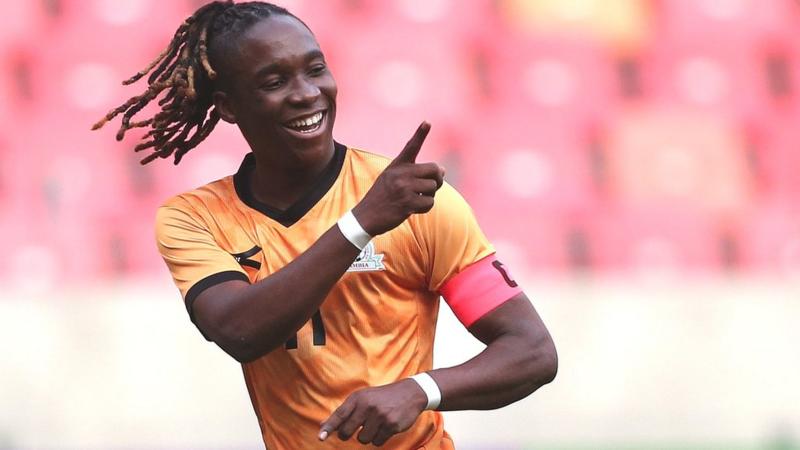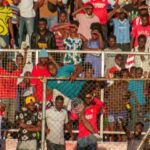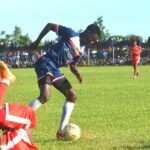
FIFA clears Zambia female footballer Barbra Banda to play at Women’s world cup
Published on December 21, 2022 at 7:33 PM by Flora Mitumba
Zambia forward Barbra Banda is eligible to play at next year’s Women’s World Cup, says a leading Fifa women’s football official.
The 22-year-old was excluded from this year’s Women’s Africa Cup of Nations by the Zambia FA (Faz) after the latter body said she failed a gender eligibility test.
“We are looking forward to welcoming her to Australia and New Zealand next year to participate,” Sarai Bareman, Fifa’s chief women’s football officer, told BBC Sport Africa.
Faz has previously said it excluded its best player from the finals given its understanding of a medical form the Confederation of African Football (Caf) adopted from Fifa.
Banda back ‘with a bang’ for Zambia after eligibility row
Banda out of Wafcon over ‘gender eligibility’ issues
However, these rules – which prompted Faz, rather than Caf, to exclude Banda from the Wafcon – are now being revised.
“Fifa is currently reviewing our gender eligibility regulations – we’re in a consultation process right now,” Bareman explained.
“My team is obviously a big part of that consultation process and in the coming months, you’ll see a new set of regulations come out of Fifa as many sports are also looking at their own regulations.”
Banda shot to global prominence at the 2020 Olympics in Tokyo when she became the first female player to score consecutive hat-tricks in the Games’ long history.
After sitting out Wafcon, she returned to the national team in September and helped Zambia win a regional southern African title for the first time, emerging as both the top scorer and best player of the tournament.
Football’s world governing body estimates the new guidelines for gender eligibility will be released before the 2023 Women’s World Cup but it remains non-committal on whether gender testing will be a mainstay of the women’s game going forward.
“It’s a very complex topic and there are many, many people who have their views on it,” Bareman explained.
“As Fifa, our role is to take all those views into consideration, because we really have to understand every view – the research, evidence, individual situations, the human rights side of things – and we have to factor all of that in before we can take any decisions.
“It’s a big decision, and it’s going to have a big impact for many people.”
During July’s Wafcon in Morocco, Faz said three other potential squad members were also affected by gender eligibility criteria and were thus not chosen to compete at the tournament.
Source; BBC


